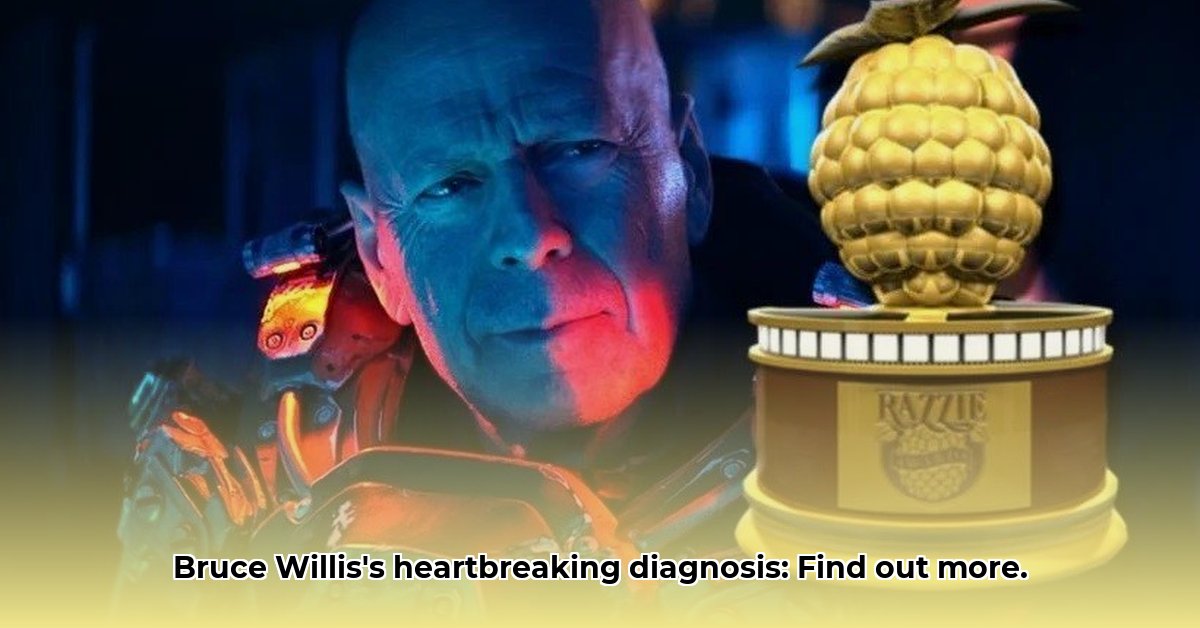
Bruce Willis's recent diagnosis with frontotemporal dementia (FTD) has, sadly, brought this often-overlooked illness into the sharp focus of public awareness. It serves as a stark reminder of the devastating impact FTD can have, not only on the individual diagnosed but also on their families and loved ones. Let's unpack this complex condition, examining its symptoms, challenges, and the ongoing quest for better treatments.
What is Frontotemporal Dementia (FTD)?
Imagine the brain's executive control centre – the areas responsible for decision-making, planning, and social understanding (the frontal and temporal lobes). In FTD, these crucial regions begin to malfunction. Unlike Alzheimer's disease, which affects different brain parts, FTD primarily targets these frontal and temporal lobes, resulting in personality changes, behavioural shifts, and language difficulties. Think of it as the brain's command centre experiencing a significant system failure. The effects vary greatly from person to person, making early diagnosis exceptionally challenging.
Bruce Willis and the Impact of FTD
Bruce Willis's public announcement was a courageous and significant act. It shone a much-needed light on FTD, a condition unfamiliar to many. His journey highlights the profound life changes that accompany this disease – impacting not only the individual but also creating significant challenges for their family and support network.
Spotting the Early Warning Signs: Subtle Clues and Significant Shifts
The insidious nature of FTD lies in its subtle early symptoms. It can be easy to dismiss them as stress, fatigue, or minor personality quirks. However, these early signs can include changes in personality – increased impulsivity, loss of interest in previously enjoyed activities, or unusual apathy. Difficulty finding the right words, understanding conversations, or following simple instructions are other potential warning signs. Problems with planning or organization, leading to seemingly simple tasks feeling overwhelming, can also occur. Is it simply getting older, or could something more serious be at play? Early recognition is key.
The Diagnostic Puzzle: Unraveling the Complexity of FTD
Sadly, there's no single test to diagnose FTD. Diagnosis is a complex process involving thorough neurological examinations, brain scans (such as MRIs) to visualise brain structure, and cognitive tests to evaluate thinking and memory skills. Early diagnosis is crucial for effective management and support, yet the subtle early symptoms often lead to delays, making early intervention more difficult.
Living with FTD: Navigating the Challenges, Finding Support
Living with FTD, or caring for someone with the condition, presents immense challenges. The emotional toll is considerable, alongside practical difficulties. Strong support networks are vital. Support groups, therapy, and professional guidance offer invaluable assistance in navigating this emotional journey and dealing with practical difficulties. Connecting with others facing similar situations provides comfort and a sense of shared experience. Remember, you don't have to face this alone.
Hope on the Horizon: Research and the Future of FTD Treatment
While a cure for FTD remains elusive, ongoing research offers hope. Scientists are actively working on improving early detection methods and developing treatments that can slow disease progression or improve quality of life. Early intervention is critical, and focused research in this area holds the most promise for positive outcomes.
How to Effectively Manage Frontotemporal Dementia Symptoms
Navigating FTD requires a multi-faceted approach focused on enhancing quality of life for both the person affected and their caregivers. This involves several key strategies:
Prioritise Communication: Adapt communication to the individual's needs. Use short, simple sentences; visual aids can be extremely helpful. Patience and understanding are vital. Remember, the struggle often stems from neurological limitations, not a lack of understanding.
Modify the Environment: Create a safe and predictable home environment. Reduce clutter and clearly label items. A calming, stable setting helps minimize anxiety and frustration.
Manage Behaviour: FTD can cause emotional outbursts and personality changes. Professional guidance (therapy, psychologists) is invaluable in identifying triggers and developing coping mechanisms. Don't forget the importance of self-care for caregivers.
Establish Routine: Consistent daily routines provide structure and security, reducing confusion and offering a sense of normalcy.
Build Support Networks: Engage with support groups, both for the individual and their family. Connecting with others facing similar challenges provides comfort and practical support.
Utilize Professional Care: As the disease progresses, professional care may become necessary, ranging from home healthcare to assisted living or specialized dementia facilities. Planning ahead is crucial.
Key Takeaways:
- FTD is a complex neurological disorder impacting behaviour, language, and personality.
- Early and accurate diagnosis is key to effective management and planning.
- Effective symptom management requires a holistic approach, combining communication adjustments, environmental modifications, behavioural management, and routine maintenance.
- Strong support networks and professional care are essential for both the person with FTD and their caregivers.
- Ongoing research offers hope for improved treatments and a better future.